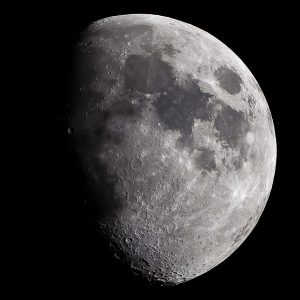The Diplomat author Mercy Kuo regularly engages subject-matter experts, policy practitioners, and strategic thinkers across the globe for their diverse insights into U.S. Asia policy. This conversation with Victoria Samson, Washington office director for Secure World Foundation and former senior analyst at the Center for Defense Information, is the 277th in “The Trans-Pacific View Insight Series.”
Explain how China’s recent landing on Mars and plans to complete its space station next year serve Beijing’s ambitions to become a space power.
We in the West often forget that that we aren’t the only audience for China’s policymakers. These accomplishments – and they very much are that – demonstrate to their domestic audience that their government has the capacity and will to become a leading space power, with the implication that this is a government to support. These steps also show that China is a peer to the long-established space powers of the U.S. and Russia, which feed into its geopolitical prestige. Now it’s not enough to have one’s own satellite, or even to be able to launch it: Major space actors now undertake planetary exploration.
How does BeiDou – China’s global navigation satellite system – factor into China’s space strategy?
China’s BeiDou satellite navigation system is complete and provides global coverage, allowing it to join the ranks of other GNSS systems like GPS, GLONASS, and Galileo, and keeps it a rung above satellite navigation systems that provide regional coverage like India’s NavIC or Japan’s QZSS. BeiDou gives China the opportunity to provide satnav data to its domestic market and very possibly later paves the way for inroads to the global market. Furthermore, it is another marker to demonstrate China’s technical and scientific prowess, which enhances its geopolitical stature, as well as frees it from “having” to use GPS or other GNSS systems. Like with space exploration, it is starting to appear that to be a major world power, one must have its own GNSS system: both the U.K. and South Korea have also expressed interest in developing them as well.
Compare and contrast China’s space advancement trajectory with that of the U.S. and Russia. How do Washington and Moscow view China’s recent space developments?
China’s human spaceflight trajectory has largely mimicked that of the U.S. and Russia. A lot of the concern in the U.S. focuses more on what China could be doing. Of course, many in the U.S. national security community take the worst-case scenario, assuming there is malign aggression spurring on China’s space activities, and view China’s trajectory with that lens. Moscow and Beijing have their own complicated relationship, but I would take their recent actions of signing an MOU and announcing their roadmap for their International Lunar Research Station as a way in which they are striving to counterbalance the United States.
Having said that, while Russia historically has been a space superpower and still is a major player in human spaceflight with its work on the ISS, its star is fading and it is becoming increasingly irrelevant to how the space domain is evolving (it has no real commercial space sector to speak of, for example). So I would see this partnership more as an effort by the Russians to remain a space power than anything else. This also parallels the partnership we’ve seen demonstrated in joint Russian-Chinese diplomatic efforts in U.N. space security discussions, like their draft Treaty on the Prevention of the Placement of Weapons in Outer Space, the Threat or Use of Force against Outer Space Objects (PPWT), which they have been (unsuccessfully) pushing since 2008, or the concept of no first placement of weapons in space.
What are strategic implications of China’s space program for U.S. defense policy?
China’s space program is part of its overall strategic capabilities that are very unsettling for U.S. military planners. The Pentagon identified China as a strategic competitor in 2018. I am sure that Chinese space capabilities drove a lot of the decision-making process that led to the news earlier this month that U.S. Secretary of Defense Lloyd Austin had issued an internal directive to the Pentagon to increase the amount of resources it uses to meet what it sees as Chinese challenges to U.S. security.
Assess how China’s ambitions in space fuel the China-U.S. tech race and more broadly, China-U.S. rivalry.
U.S. concerns about Chinese ambitions in space go back quite literally to the beginning of the space age. Qian Xuesen worked on the Manhattan Project and was one of the early scientists working on U.S. space projects at CalTech’s Jet Propulsion Lab until U.S. suspicions about his intent led to his house arrest and then eventually his return to China, where he helped found China’s space program. Jumping ahead to the 1990s, Congressional worries about China’s space program led to extremely strict export control restrictions for space technologies, which did little to impede China’s progress but instead hampered the U.S. space industry as it lost market share.
Furthermore, China is very shrewdly using its space program as soft power outreach to generate relationships and connections with countries that have strategic interest to Beijing. It will be interesting to see how successful the U.S. is with its Artemis Accords in terms of generating partnerships; while the U.S. and Chinese moon efforts are in theory complementary, in practice they might not end up that way. It is possible that we would end up with the lunar equivalent of APRSAF [Asia-Pacific Regional Space Agency Forum] versus APSCO [Asia Pacific Space Cooperation Organization]. One hopes not, but it is important to take active steps now to ensure that that situation doesn’t inadvertently evolve.

































